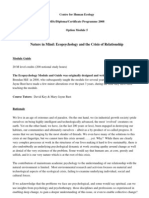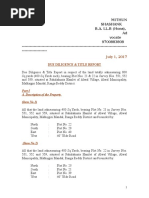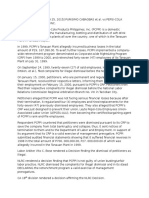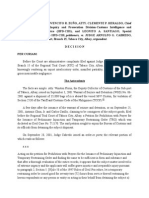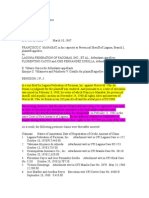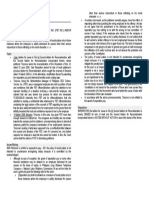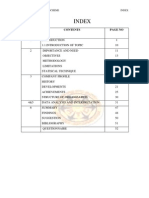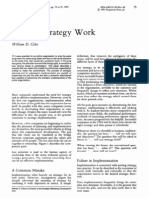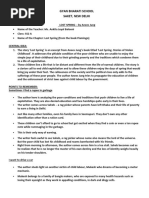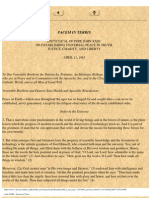Asset Privatization Trust V Court of Appeals
Asset Privatization Trust V Court of Appeals
Uploaded by
King BadongCopyright:
Available Formats
Asset Privatization Trust V Court of Appeals
Asset Privatization Trust V Court of Appeals
Uploaded by
King BadongOriginal Description:
Original Title
Copyright
Available Formats
Share this document
Did you find this document useful?
Is this content inappropriate?
Copyright:
Available Formats
Asset Privatization Trust V Court of Appeals
Asset Privatization Trust V Court of Appeals
Uploaded by
King BadongCopyright:
Available Formats
Asset Privatization Trust v Court of Appeals, 300 SCRA 579 (1998)
Facts:
MMIC, PNB and DBP executed a Mortgage Trust Agreementwhereby MMIC, as mortgagor, agreed to constitute a
mortgage in favor or PNB and DBP as mortgagees, over all MMIC's assets. Article IV of the Mortgage Trust Agreement
provides for Events of Default, which expressly includes the event that the MORTGAGOR shall fail to pay any amount
secured by this Mortgage Trust Agreement when due. In various requests for advances/remittances of loans if huge
amounts, Deeds of Undertaking, Promissory Notes, Loan Documents, Deeds of Real Estate Mortgages, MMIC invariably
committed to pay either on demand or under certain terms the loans and accommodations secured from or guaranteed
by both DBP and PNB. Because of the tremendous loans obtained, a financial restructuring plan (FRP) designed to
reduce MMIC's interest expense through debt conversion to equity was drafted SGV, however, it was never adopted.
The various loans and advances made by DBP and PNB to MMIC had become overdue and since any restructuring
program relative to the loans was no longer feasible, and in compliance with the directive of Presidential Decree No.
385, DBP and PNB as mortgagees of MMIC assets, decided to exercise their right to extrajudicially foreclose the
mortgages in accordance with the Mortgage Trust Agreement. The assets were eventually transferred to APT. SHs of
MMIC thereafter filed a derivative suit against DBP and PNB praying that the foreclosure be annulled, that the FRP be
followed and damages. In arbitration proceedings, MMIC obtained a favorable decision. Court of Appeals denied due
course and dismissed the petition for certiorari.
Issue: Whether or not theMMIC is entitled to moral damages.
Ruling: NO.
As a rule, a corporation exercises its powers, including the power to enter into contracts, through its board of
directors. While a corporation may appoint agents to enter into a contract in its behalf, the agent should not exceed
his authority. In the case at bar, there was no showing that the representatives of PNB and DBP in MMIC even had the
requisite authority to enter into a debt-for-equity swap. And if they had such authority, there was no showing that the
banks, through their board of directors, had ratified the FRP.
Further, how the MMIC could be entitled to a big amount of moral damages when its credit reputation was not exactly
something to be considered sound and wholesome. Under Article 2217 of the Civil Code, moral damages include
besmirched reputation which a corporation may possibly suffer. A corporation whose overdue and unpaid debts to the
Government alone reached a tremendous amount of P22 Billion Pesos cannot certainly have a solid business reputation
to brag about.
Moral damages are in the category of an award designed to compensate the claimant for actual injury suffered and not
to impose a penalty on the wrongdoer. The award is not meant to enrich the complainant at the expense of the
defendant, but to enable the injured party to obtain means, diversion, or amusements that will serve to obviate the
moral suffering he has undergone. It is aimed at the restoration, within the limits of the possible, of the spiritual status
quo ante, and should be proportionate to the suffering inflicted. . . The award of moral damages cannot be granted in
favor of a corporation because, being an artificial person and having existence only in legal contemplation, it has no
feelings, no emotions, no senses. It cannot, therefore, experience physical suffering and mental anguish, which can be
experienced only by one having a nervous system. The statement in People v. Manero [218 SCRA 85 (1993)] and
Mambulao Lumber Co. v. PNB [130 Phil. 366 (1968)], that a corporation may recover moral damages if it “has a good
reputation that is debased, resulting in social humiliation” is an obiter dictum. . . The possible basis of recover of a
corporation would be under Articles 19, 20 and 21 of the Civil Code, but which requires a clear proof of malice or bad
faith.
You might also like
- McGraw-Hill - 400 Must-Have Words For The TOEFL PDFDocument6 pagesMcGraw-Hill - 400 Must-Have Words For The TOEFL PDFali8826373No ratings yet
- Sia V PeopleDocument1 pageSia V PeopleKing BadongNo ratings yet
- The Millionaire Next Door - QuestionsDocument5 pagesThe Millionaire Next Door - Questionsapi-339888772No ratings yet
- Ecopsych Module Guide 2008-1Document68 pagesEcopsych Module Guide 2008-1Dan GlassNo ratings yet
- Poetry of Judith WrightDocument13 pagesPoetry of Judith WrightPaula JSNo ratings yet
- Title Certificate.Document6 pagesTitle Certificate.Mithun Shashank100% (1)
- Salas v. AboitizDocument1 pageSalas v. AboitizRuss TuazonNo ratings yet
- Silva Vs NLRCDocument5 pagesSilva Vs NLRCjed_sindaNo ratings yet
- 2.1 Ermita-Malate Hotel and Motel Operators Association, Inc. vs. City Mayor of ManilaDocument1 page2.1 Ermita-Malate Hotel and Motel Operators Association, Inc. vs. City Mayor of ManilaBelen Aliten Sta MariaNo ratings yet
- MLPAI V AlmendrasDocument2 pagesMLPAI V AlmendrasAgz Macalalad100% (2)
- Holiday Inn Manila v. NLRCDocument2 pagesHoliday Inn Manila v. NLRCMekiNo ratings yet
- Personal Status Legal Personality and Capacity ReportDocument34 pagesPersonal Status Legal Personality and Capacity ReportRussel SirotNo ratings yet
- CD - Caltex (Philippines), Inc. vs. Sulpicio LinesDocument2 pagesCD - Caltex (Philippines), Inc. vs. Sulpicio LinesMhaliNo ratings yet
- Philippine Charity Sweepstakes Office v. Tma Group of Companies Pty LTDDocument41 pagesPhilippine Charity Sweepstakes Office v. Tma Group of Companies Pty LTDsejinmaNo ratings yet
- JULITO SAGALES, Petitioner, Rustan'S Commercial Corporation, RespondentDocument11 pagesJULITO SAGALES, Petitioner, Rustan'S Commercial Corporation, RespondentDreiBaduaNo ratings yet
- Manila Cordage Company vs. The Court of Industrial RelationsDocument6 pagesManila Cordage Company vs. The Court of Industrial RelationsMichelleNo ratings yet
- Insular Bank V IAC (DADO)Document1 pageInsular Bank V IAC (DADO)Kylie Kaur Manalon DadoNo ratings yet
- TRANSFIELDDocument2 pagesTRANSFIELDKDNo ratings yet
- Cabaobas V Pepsi-ColaDocument4 pagesCabaobas V Pepsi-ColachiiwaaaaaaaNo ratings yet
- PALE - 15. Criticisms Against The Courts and JudgesDocument7 pagesPALE - 15. Criticisms Against The Courts and JudgesAto TejaNo ratings yet
- Ifurung v. Carpio-MoralesDocument8 pagesIfurung v. Carpio-MoralesJoseph Sebastian JavierNo ratings yet
- Ching v. CADocument2 pagesChing v. CAVanessa Grace TamarayNo ratings yet
- Javier v. FlyAceDocument2 pagesJavier v. FlyAceDindo RoxasNo ratings yet
- Manila Diamond Hotel Ee Union Vs CA GR 140518Document2 pagesManila Diamond Hotel Ee Union Vs CA GR 140518LIERANo ratings yet
- 07 Vda de Danao V GineteDocument2 pages07 Vda de Danao V GineteNat DuganNo ratings yet
- 33 Dale Stricland Vs Ernst & Young 8 1 18 G.R. No. 193782Document3 pages33 Dale Stricland Vs Ernst & Young 8 1 18 G.R. No. 193782RubenNo ratings yet
- Manaya Vs Alabang Country Club DigestDocument1 pageManaya Vs Alabang Country Club DigestEmmanuel OrtegaNo ratings yet
- Adr Case DigestsDocument7 pagesAdr Case DigestsNikclausse Marquez100% (1)
- Bernardo VS CaDocument2 pagesBernardo VS CaRamon Khalil Erum IVNo ratings yet
- Asset Privatization Trust Vs Court of AppealsDocument2 pagesAsset Privatization Trust Vs Court of AppealsPipoy ReglosNo ratings yet
- Honda Phils., Inc. v. Samahan NG Malayang Manggagawa Sa HondaDocument2 pagesHonda Phils., Inc. v. Samahan NG Malayang Manggagawa Sa HondaJun AmaroNo ratings yet
- Sta Lucia East Commercial Corp Vs SOLEDocument2 pagesSta Lucia East Commercial Corp Vs SOLECristelle Elaine ColleraNo ratings yet
- Digest Zuno Vs CabredoDocument6 pagesDigest Zuno Vs CabredoChristian Eduard de DiosNo ratings yet
- 82 Ren Transport v. NLRCDocument2 pages82 Ren Transport v. NLRCMark Evan GarciaNo ratings yet
- LAGO 55. Stronghold Insurance Company, Inc., v. Spouses Rune and Lea Stroe, G.R. No. 204689, January 21, 2015Document2 pagesLAGO 55. Stronghold Insurance Company, Inc., v. Spouses Rune and Lea Stroe, G.R. No. 204689, January 21, 2015Sam LagoNo ratings yet
- National Power Corporation vs. Posada, 752 SCRA 550, March 11, 2015Document36 pagesNational Power Corporation vs. Posada, 752 SCRA 550, March 11, 2015Xtine CampuPotNo ratings yet
- Philippine Agila Satellite V LichaucoDocument5 pagesPhilippine Agila Satellite V LichaucoCatherine DimailigNo ratings yet
- Moran v. CADocument13 pagesMoran v. CAJoanne CamacamNo ratings yet
- Genuino Vs NLRCDocument2 pagesGenuino Vs NLRCJessy Francis100% (1)
- Manabat v. Laguna FederationDocument3 pagesManabat v. Laguna FederationKristineSherikaChyNo ratings yet
- Labor 5 & 6Document12 pagesLabor 5 & 6Jevi RuiizNo ratings yet
- 31 Blue Dairy vs. NLRCDocument2 pages31 Blue Dairy vs. NLRCPaolo Miguel ArqueroNo ratings yet
- 67 Sombong Vs CADocument1 page67 Sombong Vs CAJasmin Canones-KimNo ratings yet
- 7 Litonjua vs. EternityDocument24 pages7 Litonjua vs. EternityRaiya AngelaNo ratings yet
- No. L-15380 (Casa1)Document2 pagesNo. L-15380 (Casa1)angel robedilloNo ratings yet
- 01 Tirazona vs. Phil Eds Techno ServiceDocument1 page01 Tirazona vs. Phil Eds Techno ServiceCarlo FernandezNo ratings yet
- Tan Vs AdreDocument2 pagesTan Vs AdreLilibeth Dee GabuteroNo ratings yet
- South City Homes Vs Ba FinanceDocument5 pagesSouth City Homes Vs Ba Financeangelsu04No ratings yet
- Illegal Recruitment and Liability For Estafa People of The Philippines Melissa ChuaDocument1 pageIllegal Recruitment and Liability For Estafa People of The Philippines Melissa Chuakhristel_calantoc_57No ratings yet
- Guingona, Jr. v. City Fiscal of Manila - 1984Document2 pagesGuingona, Jr. v. City Fiscal of Manila - 1984sophiaNo ratings yet
- 10-Spouses Soller v. Singson20220404-13-1bctkffDocument5 pages10-Spouses Soller v. Singson20220404-13-1bctkffBernadith RectoNo ratings yet
- Belo Medical Group vs. Jose SantosDocument2 pagesBelo Medical Group vs. Jose SantosBeatta RamirezNo ratings yet
- Makati Leasing and Finance Corp. vs. Wearever Textile Mills, Inc. 122 Scra 296Document5 pagesMakati Leasing and Finance Corp. vs. Wearever Textile Mills, Inc. 122 Scra 296Apple Ke-eNo ratings yet
- Case MatrixDocument10 pagesCase MatrixAly ConcepcionNo ratings yet
- Reyes vs. TanDocument6 pagesReyes vs. TanJoie UrsalNo ratings yet
- POLITICAL - Security and Seriff Division of SBVCRUZ - UYDocument1 pagePOLITICAL - Security and Seriff Division of SBVCRUZ - UYMikMik UyNo ratings yet
- 2 - United Coconut Planters Bank V Iac - GR No. 72664-65 - CayabyabDocument2 pages2 - United Coconut Planters Bank V Iac - GR No. 72664-65 - CayabyabCc Co100% (1)
- Trump V VanceDocument2 pagesTrump V VanceLayaNo ratings yet
- 33 Tupaz IV v. CA (Magbanua)Document2 pages33 Tupaz IV v. CA (Magbanua)Nico de la PazNo ratings yet
- Madrigal Vs DojDocument1 pageMadrigal Vs DojMelvin L. TomarongNo ratings yet
- Social Justice Society V Dangerous Drugs BoardDocument3 pagesSocial Justice Society V Dangerous Drugs BoardROSALIENo ratings yet
- Crystal Vs BPIDocument3 pagesCrystal Vs BPILindsay MillsNo ratings yet
- Crystal Vs BPI, GR 172428, 2008Document2 pagesCrystal Vs BPI, GR 172428, 2008ble maNo ratings yet
- Apt vs. Ca Et Al Digest: DamagesDocument1 pageApt vs. Ca Et Al Digest: DamagesIrish Bianca Usob LunaNo ratings yet
- Solid Builders, Inc. and Medina Foods Industries, Inc. Vs China Banking Corporation G.R. No. 179665 April 3, 2013 Leonardo-De Castro, J.Document3 pagesSolid Builders, Inc. and Medina Foods Industries, Inc. Vs China Banking Corporation G.R. No. 179665 April 3, 2013 Leonardo-De Castro, J.Paolo MendioroNo ratings yet
- Acme Shoe v. CA (1996)Document6 pagesAcme Shoe v. CA (1996)Andre Philippe RamosNo ratings yet
- Delos Reyes Vs PaternoDocument1 pageDelos Reyes Vs PaternoKing BadongNo ratings yet
- Iloilo vs. SMART DigestDocument3 pagesIloilo vs. SMART DigestKing BadongNo ratings yet
- CIR v. St. Paul - DigestDocument2 pagesCIR v. St. Paul - DigestMik Mabute50% (2)
- CIR vs. CA & YMCADocument3 pagesCIR vs. CA & YMCAKing BadongNo ratings yet
- Tiu Vs CADocument2 pagesTiu Vs CAKing Badong100% (2)
- LTD Feb 1 2020Document1 pageLTD Feb 1 2020King BadongNo ratings yet
- Vivo vs. MontesaDocument10 pagesVivo vs. MontesaKing BadongNo ratings yet
- Part IDocument7 pagesPart IKing BadongNo ratings yet
- JUan Luna Subd Inc., v. SarmientoDocument9 pagesJUan Luna Subd Inc., v. SarmientoKing BadongNo ratings yet
- PNB vs. ICBDocument2 pagesPNB vs. ICBKing Badong50% (2)
- Caltex v. COA - DigestDocument2 pagesCaltex v. COA - DigestKing Badong100% (1)
- Rep v. CADocument2 pagesRep v. CAKing BadongNo ratings yet
- LTD 1Document16 pagesLTD 1King BadongNo ratings yet
- Tan vs. CincoDocument2 pagesTan vs. CincoKing Badong67% (3)
- CIR v. PLDTDocument2 pagesCIR v. PLDTKing Badong100% (1)
- MCIAA vs. MarcosDocument2 pagesMCIAA vs. MarcosKing BadongNo ratings yet
- Reyes vs. AlmanzorDocument2 pagesReyes vs. AlmanzorKing BadongNo ratings yet
- Progressive Development Corp vs. QCDocument2 pagesProgressive Development Corp vs. QCKing BadongNo ratings yet
- 21 Sison V AnchetaDocument1 page21 Sison V AnchetaKing BadongNo ratings yet
- Villareal vs. PeopleDocument2 pagesVillareal vs. PeopleKing BadongNo ratings yet
- MCIAA vs. MarcosDocument2 pagesMCIAA vs. MarcosKing BadongNo ratings yet
- Esso Production V Maniam MayavanDocument17 pagesEsso Production V Maniam MayavanKhalilahjungNo ratings yet
- Team Building: Geneva 2007Document19 pagesTeam Building: Geneva 2007Noora100% (10)
- Lord JimDocument9 pagesLord JimPriyanka Meena100% (1)
- Bar Exam Quasi-ContractsDocument4 pagesBar Exam Quasi-ContractsmrvirginesNo ratings yet
- People Vs Dela CruzDocument2 pagesPeople Vs Dela CruzabbyNo ratings yet
- Food, Civil Suppllies & Consumer Affairs Department: 1. Vacancy and Pay ScaleDocument18 pagesFood, Civil Suppllies & Consumer Affairs Department: 1. Vacancy and Pay ScaleSweet PatelNo ratings yet
- Employee Welfare SchemeDocument56 pagesEmployee Welfare Schemerkray78100% (1)
- Workbook Times New RomanDocument40 pagesWorkbook Times New RomanJhona Salo100% (1)
- Vattimo, Santiago Zabala (Editor) - Nihilism and Emancipation - Ethics, Politics, and Law (European Perspectives - A Series in Social Thought and Cultural CritDocument248 pagesVattimo, Santiago Zabala (Editor) - Nihilism and Emancipation - Ethics, Politics, and Law (European Perspectives - A Series in Social Thought and Cultural CritVlkaizerhotmail.com KaizerNo ratings yet
- Rhetorical Analysis Assignment PKTDocument9 pagesRhetorical Analysis Assignment PKTGregory Zobel100% (5)
- Summary of Business EthicsDocument19 pagesSummary of Business EthicsRemrose DechillaNo ratings yet
- Reading 3 Giles - Making - Strategy - The Marlow MethodDocument17 pagesReading 3 Giles - Making - Strategy - The Marlow MethodRaksha LudhaniNo ratings yet
- Criminal Complaint Paul R. Fielder July 15 2019Document12 pagesCriminal Complaint Paul R. Fielder July 15 2019Anonymous 9E0QDjy7100% (1)
- SSGC reportHRDocument44 pagesSSGC reportHRŠēńti Měñtäĺ100% (1)
- Miracle PastranaDocument4 pagesMiracle PastranaSai PastranaNo ratings yet
- The Lawyer's Oath: Court of AppealsDocument6 pagesThe Lawyer's Oath: Court of Appealsheyy rommel100% (1)
- Quiros - Position PaperDocument11 pagesQuiros - Position PaperLaurene Ashley Sore-YokeNo ratings yet
- CULTURE 11 Q3 M2 - The Concept of SocietyDocument8 pagesCULTURE 11 Q3 M2 - The Concept of SocietyHENJEL PERALESNo ratings yet
- Pub Corp DigestsDocument2 pagesPub Corp Digestsglan589No ratings yet
- People 1Document219 pagesPeople 1anon_919669374No ratings yet
- Gyan Bharati School Saket, New DelhiDocument3 pagesGyan Bharati School Saket, New DelhiIshitaNo ratings yet
- Towards The Third Universe: The Human Final Frontier: ("To Boldly Go To Where Some People Had Gone Before")Document4 pagesTowards The Third Universe: The Human Final Frontier: ("To Boldly Go To Where Some People Had Gone Before")api-16471202No ratings yet
- Pacem in TerrisDocument34 pagesPacem in TerrisqutranNo ratings yet
- The Informations Are Not Duplicitous OnesDocument3 pagesThe Informations Are Not Duplicitous OnesILANIE MALINISNo ratings yet
- 5.4 The Role of Ethics and National Culture - Organizational BehaviorDocument5 pages5.4 The Role of Ethics and National Culture - Organizational BehaviorMaria AbubakkarNo ratings yet



